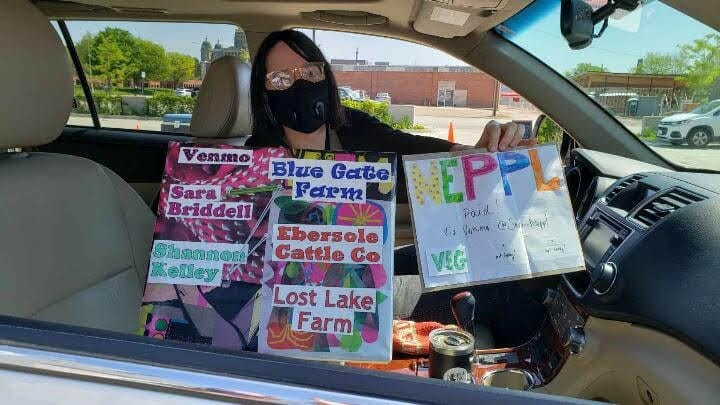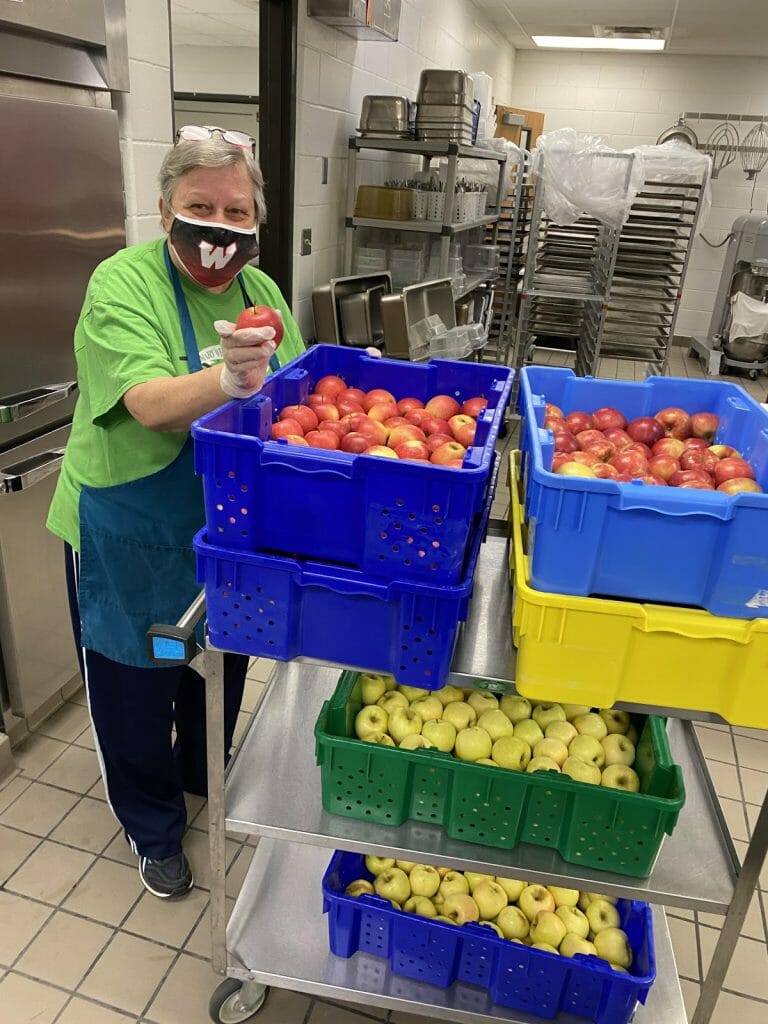COVID-19 Illustrates Opportunities For Iowa’s Local Foods Systems
Many PFI members have been tugging on the curtain of Iowa’s local food system for years in an effort to get Iowans to better understand and value a food system of, by and for Iowans. The challenge has been garnering public interest and addressing the various challenges to local foods in Iowa…until 2020 and the advent of coronavirus shone a light on the realities and vulnerabilities of Iowa’s food system.
Let’s call the impact of 2020 on Iowa’s local food system the “Toto Factor.”
After a long, and sometimes harrowing journey throughout the “Wizard of Oz” story, Dorothy finds herself pleading to the mysterious “Great Oz” for “gifts” for her friends. In that scene it is Toto, Dorothy’s beloved dog, who slips behind the curtain and, with a tug, reveals the mesmerizing force of the “Great Oz” is not a mysterious force, but a simple, tangible human. COVID-19, and the myriad stories surrounding it, has been Iowa’s Toto, unveiling the recognizable, tangible asset we have in our local food and farm system.
Rapid changes in marketplace options and supply chain dynamics in 2020 tugged that curtain even further, provoking Iowans to take a hard look at the food system they want to support. Grocery shelves that seem perpetually full suddenly dwindled and were empty. Restaurant closures forced consumers to polish up their home chef skills. Farmers markets were classified as an “essential service” due to their dual role supporting local farms and providing communities access to fresh, healthy food.

Blue Gate farm and three other local businesses provided customers a safe and easy, one-stop option for local foods in lieu of a farmers market during the summer of 2020 using online ordering and a no-contact, weekly, drive-through delivery. Photo courtesy of Blue Gate Farm.
Consumers were able to connect with the foods because the farmers themselves poured on the creativity. Plans for full seasons at farmers markets were quickly supplemented, if not replaced, by online shopping platforms. Individual farmers leveraged the power of collaboration, and curbside pick up emerged as a new way to connect with a wide selection of products from farms and local businesses. Community Supported Agriculture (CSA) subscriptions saw a spike after several years of waning demand.
Iowa’s Secretary of Agriculture, Mike Naig took notice and, during his participation in the final PFI Spring “Friday Farmer Meet Up” noted how impressed he was with the agility demonstrated by local food producers.
In August, the Secretary stated that the “…pandemic has reinforced the critical role Iowa farmers play in the local food chain and beyond, as well as the important role of schools in providing nutritious meals to our students,” revealing his own deeper embrace of Iowa’s local food system. With that, he announced The Local Produce and Protein Program (LPPP) using coronavirus relief dollars “to support local producers and schools as they navigate the ongoing disruptions.” 54 farmers and food hubs applied for equipment funds. 36 K-12 schools applied for equipment and supply funds. More than 100 K-12 schools, colleges and universities and early care centers were awarded grants to buy local foods. LPPP hit its target – providing quality food through the critical channel of our public schools while providing local producers a boost of support during a challenging season. Originally, a total of $490,000 was available in grants. An additional $250,000 was later allocated due to demand, for a total of $740,000.

Williamsburg Food staff, Dede Shaull, receives shipment of local apples Fall 2020 as part of the Local Produce Protein Program. Photo courtesy: Giselle Bruskewitz, Field to Family Food Hub
LPPP grants were awarded in September, and all purchases had to be completed by December 1. The next ten weeks were a flurry of activity. The farmers had the supply, food hubs were able to source, aggregate and deliver, and veteran schools as well as newbies to the Iowa farm to school program placed orders. As of January 7, 2021, $603,000 of $740,000 funds had been spent. $101,000 had been reimbursed for school kitchen equipment, $277,000 for producer equipment, and $225,000 for school food purchases. Schools in 53 of Iowa’s 99 counties participated.
For more than 25 years, PFI farmers and their networks have been working hard to not only imagine, but truly establish Iowa’s local food system. The LPPP grants were able to engage the whole food system from production to demand as a critical strategy to meet Iowa’s health and economic needs.
The reaction to this event is now awakening our imagination for where our local food and farm system can take us. Adding to this momentum is the Iowa Farmers Union’s Local Food/Healthy Kids Initiative and, more broadly, a renewed energy for local food system policy development.
We now anticipate the 2021 season with a poignant question: was the Toto factor limited to 2020? Can local food producers count on consumer demand to remain strong? Are there opportunities to fortify Iowa’s local food system with a policy commitment beyond emergency federal funds?
On January 12, 2021, Iowa Governor Kim Reynolds provided us a hint in her 2021 Condition of the State Address:
“The post-COVID-19 world won’t be the same as the pre-COVID-19 world. And it shouldn’t. We’ve learned a lot. Entire sectors of our economy were forced to innovate overnight and adapt to survive … We can return to where we were …. Or we can take what we’ve learned and the innovation that’s been applied over the past ten months and capitalize on the opportunity to reimagine, modernize, and possibly restructure everything from healthcare and education, to our workforce and quality of life.”
With curtain in his teeth, Toto turned to Dorothy, who stood in awe, newly aware of her own power to believe in the truth that “there’s no place like home.” Our coronavirus Toto has given us a taste of how an established local food and farm system in Iowa can meet the needs of our great state. We can use this momentum to build commitment to Iowa’s local food and farm system. Let’s keep this momentum going.
Jan Libbey is a PFI member and owner/operator of One Step at a Time Gardens with a personal and professional interest in local food systems in Iowa.
Audrey E. Tran Lam is a PFI member and Environmental Health Program Manager at the University of Northern Iowa’s Center for Energy and Environmental Education.
